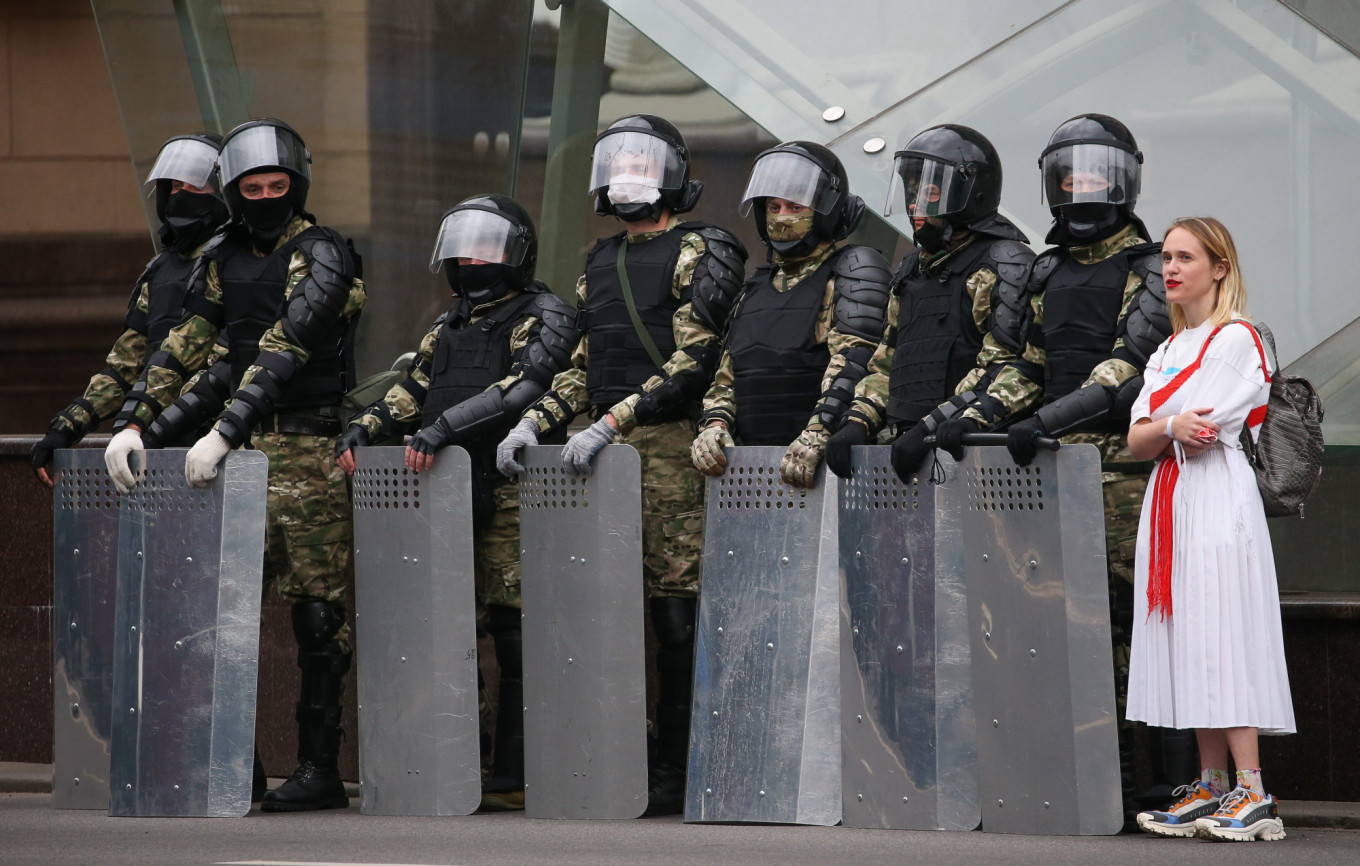
Thousands of Belarusians staged a peaceful new march on Sunday, keeping the pressure on strongman Alexander Lukashenko who has refused to quit after his disputed re-election and turned to Russia for help to stay in power.
Holding red-and-white flags and placards, protesters including many students took to the streets of the capital Minsk despite authorities mounting a massive show of force and detaining some demonstrators.
Troops, water cannon, armoured personnel carriers and armoured reconnaissance vehicles were deployed to the city centre ahead of the march and metro stations in Minsk’s centre were closed.
Unprecedented protests broke out after Lukashenko, who has ruled the ex-Soviet state for 26 years, claimed re-election with 80% of the vote on Aug. 9.
Opposition rival Svetlana Tikhanovskaya says she won the vote but Lukashenko’s security forces have detained thousands of protesters, many of whom accused police of beatings and torture. Several people have died in the crackdown.
Tikhanovskaya left Belarus under pressure from authorities and took shelter in EU member Lithuania.
Belarusians have been demonstrating across the country for nearly a month even though the protest movement lacks a clear leader, with many activists jailed or forced out of the country.
Many say they will keep taking to the streets until Lukashenko quits.
“Lukashenko must go,” Nikolai Dyatlov, a 32-year-old protester, told AFP.
“Why is our legitimately elected president located in a different country?” he said, referring to 37-year-old Tikhanovskaya
More than 100,000 people flooded the streets of the capital Minsk over the past three weekends.
“Remember we are strong as long as we are united,” Tikhanovskaya told supporters in a short video address ahead of the “March of Unity.”
Tikhanovskaya, a political novice, contested the election after her blogger husband was jailed and barred from running, along with several other prominent Lukashenko critics.
On Friday, Tikhanovskaya addressed a meeting of the UN Security Council by video link, calling for sanctions against those responsible for the alleged electoral fraud and rights violations.
The Baltic nations of Lithuania, Latvia and Estonia have blacklisted Lukashenko and 29 high-ranking officials in his administration but other members of the EU bloc appear reluctant to target the Belarus strongman personally.
Russia has said it will respond to any Western attempts to “sway the situation” and President Vladimir Putin has raised the possibility of sending military support.
Putin has been keen to unify Russia and Belarus, and Moscow has accompanied its recent offers of economic and military aid with calls for tighter integration.
Lukashenko has in the past ruled out outright unification and sought to play Moscow against the West but his options now are limited.
On Thursday, Lukashenko hosted Russian Prime Minister Mikhail Mishustin and said the two countries had managed to agree on issues they “could not agree earlier.”
The moustachioed leader said he planned to “dot all the i’s” with Putin in Moscow in the next few weeks.
Lukashenko made headlines when he claimed during a meeting with Mishustin that his security forces had intercepted German calls showing that Putin foe Alexei Navalny’s poisoning with a Soviet-era Novichok nerve agent had been faked.
Belarusian state television broadcast the “intercept” in which a Mike in Warsaw and Nick in Berlin discuss Navalny’s materials and call Lukashenko a “tough nut to crack.”
Social media in Russia went berserk in mocking the Belarus leader and even some staunchly pro-Kremlin propagandists expressed embarrassment.
Lukashenko also raised eyebrows last month when he brandished an assault rifle and had his 16-year-old son Nikolai appear next to him in a bulletproof vest while also weilding a weapon.
